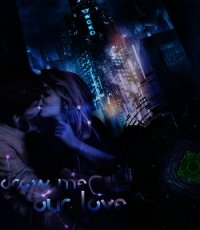Tell No One - Coben Harlan (лучшие книги .txt) 📗
I remember an internship she did during the summer break after our freshman year of college. She worked for Covenant House, rescuing runaway and homeless children from New York's worst streets. I went with her once in the Covenant House van, cruising up and down Forty-second Street pre-Giuliani, sifting through putrid pools of quasi-humanity for children who needed shelter. Elizabeth spotted a fourteen-year-old hooker who was so strung out that she'd soiled herself. I winced in disgust. I'm not proud of that. These people may have been human, but – I'm being honest here – the filth repulsed me. I helped. But I winced.
Elizabeth never winced. That was her gift. She took the children by the hand. She carried them. She cleaned off that girl and nursed her and talked to her all night. She looked them straight in the eye. Elizabeth truly believed that everyone was good and worthy; she was naive in a way I wish I could be.
I'd always wondered if she'd died that same way – with that naivete intact – still clinging through the pain to her faith in humanity and all that wonderful nonsense. I hope so, but I suspect that KillRoy probably broke her.
Kim Parker sat primly with her hands in her lap. She'd always liked me well enough, though during our youth both sets of parents had been concerned with our closeness. They wanted us to play with others. They wanted us to make more friends. Natural, I suppose.
Hoyt Parker, Elizabeth's father, wasn't home yet, so Kim and I chatted about nothing – or, to say the same thing a different way, we chatted about everything except Elizabeth. I kept my eyes focused on Kim because I knew that the mantel was chock-full of photographs of Elizabeth and her heart-splitting smile.
She's alive…
I couldn't make myself believe it. The mind, I know from my psychiatric rotation in medical school (not to mention my family history), has incredible distortive powers. I didn't believe I was nuts enough to conjure up her image, but then again, crazy people never do. I thought about my mother and wondered what she realized about her mental health, if she was even capable of engaging in serious introspection.
Probably not.
Kim and I talked about the weather. We talked about my patients. We talked about her new part-time job at Macy's. And then Kim surprised the hell out of me.
"Are you seeing anyone?" she asked.
It was the first truly personal question she had ever asked me. It knocked me back a step. I wondered what she wanted to hear. "No," I said.
She nodded and looked as though she wanted to say something else. Her hand fluttered up to her face.
"I date," I said.
"Good," she replied with too hearty a nod. "You should."
I stared at my hands and surprised myself by saying, "I still miss her so much." I didn't plan on that. I planned on keeping quiet and following our usual safe track. I glanced up at her face. She looked pained and grateful.
"I know you do, Beck," Kim said. "But you shouldn't feel guilty about seeing other people."
"I don't," I said. "I mean, it's not that."
She uncrossed her legs and leaned toward me. "Then what is it?"
I couldn't speak. I wanted to. For her sake. She looked at me with those shattered eyes, her need to talk about her daughter so surface, so raw. But I couldn't. I shook my head.
I heard a key in the door. We both turned suddenly, straightening up like caught lovers. Hoyt Parker shouldered open the door and called out his wife's name. He stepped into the den and with a hearty sigh, he put down a gym bag. His tie was loosened, his shirt wrinkled, his sleeves rolled up to the elbows. Hoyt had forearms like Popeye. When he saw us sitting on the couch, he let loose another sigh, this one deeper and with more than a hint of disapproval.
"How are you, David?" he said to me.
We shook hands. His grip, as always, was callous-scratchy and too firm. Kim excused herself and hurried out of the room. Hoyt and I exchanged pleasantries, and silence settled in. Hoyt Parker had never been comfortable with me. There might have been some Electra complex here, but I'd always felt that he saw me as a threat. I understood. His little girl had spent all her time with me. Over the years, we'd managed to fight through his resentment and forged something of a friendship. Until Elizabeth's death.
He blames me for what happened.
He has never said that, of course, but I see it in his eyes. Hoyt Parker is a burly, strong man. Rock-solid, honest Americana. He'd always made Elizabeth feel unconditionally safe. Hoyt had that kind of protective aura. No harm would come to his little girl as long as Big Hoyt was by her side.
I don't think I ever made Elizabeth feel safe like that.
"Work good?" Hoyt asked me.
"Fine," I said. "You?"
"A year away from retirement."
I nodded and we again fell into silence. On the ride over here, I decided not to say anything about what I'd seen on the computer. Forget the fact that it sounded loony. Forget the fact that it would open old wounds and hurt them both like all hell. The truth was, I didn't have a clue what was going on. The more time passed, the more the whole episode felt unreal. I also decided to take that last email to heart. Tell no one. I couldn't imagine why or what was going on, but whatever connection I'd made felt frighteningly tenuous.
Nonetheless I still found myself making sure Kim was out of earshot. Then I leaned closer to Hoyt and said softly, "Can I ask you something?"
He didn't reply, offering up instead one of his patented skeptical gazes.
"I want to know -" I stopped. "I want to know how you found her."
"Found her?"
"I mean when you first walked into the morgue. I want to know what you saw."
Something happened to his face, like tiny explosions collapsing the foundation. "For the love of Christ, why would you ask me that?"
"I've just been thinking about it," I said lamely. "With the anniversary and all."
He stood suddenly and wiped his palms on the legs of his pants. "You want a drink?"
"Sure."
"Bourbon okay?"
"That would be great."
He walked over to an old bar cart near the mantel and thus the photographs. I kept my gaze on the floor.
"Hoyt?" I tried.
He twisted open a bottle. "You're a doctor," he said, pointing a glass at me. "You've seen dead bodies."
"Yes."
"Then you know."
I did know.
He brought over my drink. I grabbed it a little too quickly and downed a sip. He watched me and then brought his glass to his lips.
"I know I never asked you about the details," I began. More than that, I had studiously avoided them. Other "families of the victims," as the media referred to us, bathed in them. They showed up every day at KillRoy's trial and listened and cried. I didn't. I think it helped them channel their grief. I chose to channel mine back at myself.
"You don't want to know the details, Beck."
"She was beaten?"
Hoyt studied his drink. "Why are you doing this?"
"I need to know."
He peered at me over the glass. His eyes moved along my face. It felt as though they were prodding my skin. I kept my gaze steady.
"There were bruises, yes."
"Where?"
"David-"
"On her face?"
His eyes narrowed, as though he'd spotted something unexpected. "Yes."
"On her body too?"
"I didn't look at her body," he said. "But I know the answer is yes."
"Why didn't you look at her body?"
"I was there as her father, not an investigator – for the purposes of identification only."
"Was that easy?" I asked.
"Was what easy?"
"Making the identification. I mean, you said her face was bruised."
His body stiffened. He put down his drink, and with mounting dread, I realized I'd gone too far. I should have stuck to my plan. I should have just kept my mouth shut.




